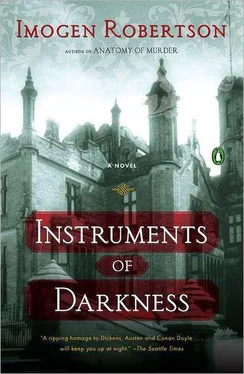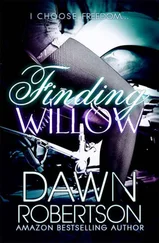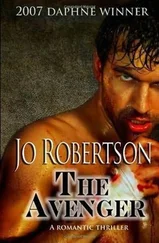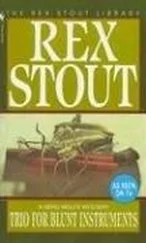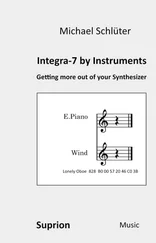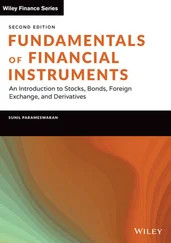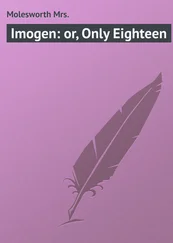Imogen Robertson - Instruments of Darkness
Здесь есть возможность читать онлайн «Imogen Robertson - Instruments of Darkness» весь текст электронной книги совершенно бесплатно (целиком полную версию без сокращений). В некоторых случаях можно слушать аудио, скачать через торрент в формате fb2 и присутствует краткое содержание. Год выпуска: 2011, Издательство: PENGUIN group, Жанр: Исторический детектив, на английском языке. Описание произведения, (предисловие) а так же отзывы посетителей доступны на портале библиотеки ЛибКат.
- Название:Instruments of Darkness
- Автор:
- Издательство:PENGUIN group
- Жанр:
- Год:2011
- ISBN:нет данных
- Рейтинг книги:5 / 5. Голосов: 1
-
Избранное:Добавить в избранное
- Отзывы:
-
Ваша оценка:
- 100
- 1
- 2
- 3
- 4
- 5
Instruments of Darkness: краткое содержание, описание и аннотация
Предлагаем к чтению аннотацию, описание, краткое содержание или предисловие (зависит от того, что написал сам автор книги «Instruments of Darkness»). Если вы не нашли необходимую информацию о книге — напишите в комментариях, мы постараемся отыскать её.
Instruments of Darkness — читать онлайн бесплатно полную книгу (весь текст) целиком
Ниже представлен текст книги, разбитый по страницам. Система сохранения места последней прочитанной страницы, позволяет с удобством читать онлайн бесплатно книгу «Instruments of Darkness», без необходимости каждый раз заново искать на чём Вы остановились. Поставьте закладку, и сможете в любой момент перейти на страницу, на которой закончили чтение.
Интервал:
Закладка:
Mr. Chase turned to him, a little confused. “What, Graves?”
“Virgil. Mr. Cowper’s translation.”
Mr. Chase coughed a little and turned back to watch the flames.
The fire was too hot even for the bravest of the plunderers now. As they watched, the last of them scrambled out of a parlor window, his coattails alight and a large gilt mirror tucked under his arm. A dozen men stamped out the flames for him as he stumbled into the crowd, laughing like a child, then clapped the man across his narrow back as if he had saved a soul from the fire. Between the bodies of men gathered around it, Graves could see the pile of plunder on the road. It was like seeing the guts of a carcass spilled out on the backyard of the butcher’s shop. He could see carved gilt chairs upended and a leg snapped and splintered, books, open and torn, fluttering helplessly, great tapestries flung down and now being wrestled into improvised cloaks and blankets by the crowd. This was all it took, then. A day or two, a fool with a petition, and there was nothing safe or sacred in London. Mr. Chase’s thoughts must have been moving in the same direction as his own.
“We walk a narrow path, Mr. Graves.”
The young man did not reply, but let his eyes close slowly and breathed in the smoke, trying to feel its texture on his tongue so that if he needed to write about it, he could bring it back. Even at this distance he could feel the heat from the broken, burning house warming his face. He opened his eyes suddenly and looked hard into Mr. Chase’s face.
“Mr. Chase-the locket, I have been thinking on it. Did it belong to Alexander’s mother?”
Mr. Chase turned back to the fire, to the gibbering crackling crowd below it.
“To a young girl. That’s all I know.”
There was a short loud cheer from the other end of the street. Graves and Mr. Chase, like the looters, turned to see a company of soldiers, muskets over their shoulders, progressing across the open space of Leicester Fields. There were only twenty of them, but the order and determination of their march made them seem somehow much more considerable.
“A young girl?”
Mr. Chase continued to watch the soldiers.
“That was all he said. ‘I think it was the young girl’s.’”
The soldiers’ red coats stood out against the green, their white chasers glimmered and the dark wood of their muskets looked businesslike. They were followed by a ragtag group of men carrying buckets. Graves thought them too late to do anything to save the house, but it seemed the hopeless-ness of the case would not be enough to stop them trying. The crowd seemed to shrink, the less bold, or the less drunk, slipping back into its folds, lowering their heads. The company officer called a halt ten yards from them.
“Drop what you are carrying, and leave this place. I order you in the name of the king!”
It was enough, it seemed. The mob, so ungovernable before, began to thin. It was sulky; an overfed child slinking away. The men with the buckets ran forward. Graves wondered if any of them were attached to Lord Saville’s family. One at least had tears running down his face. Why were they willing to make the effort, he asked himself. Perhaps to give themselves the comfort in future days of saying they had tried. The officer watched them make for the fire, and in that moment a stone flew, hard and fast from the center of the retreating crowd, and struck one of the soldiers above the eye. The man’s forehead sprang with a flow of blood at once, and he swung his musket from his shoulder into the firing position. His officer stepped forward.
“Put up your arms, Wilson. You’ll fire on my order or not at all.”
Wilson froze for a moment, then put up his musket again and wiped the blood out of his eye, his stare fixed all the time on the retreating crowd.
“Bloody-backed fuckers!” someone screamed from the mob as they turned out onto the road. The soldiers did not move, but watched till the last of them scurried out of the square, one thin man glancing again and again over his shoulders, and trying, it seemed, to dive through the legs of his companions to the relative safety of a guarded position, further away from the polished stocks of the guns.
Graves looked at Mr. Chase. “They are called bloody-backs for the color of their uniforms, I suppose?”
Mr. Chase nodded. “That, and the army likes its discipline, I understand. Every man in that company will have whip scars across his back among the war wounds, I’d reckon.”
Mr. Chase continued to watch the flames, and the attempt of the bucket-carrying men to douse them. The older fellow that Graves had noticed had come to a halt, and watched the burning like a child whose favorite toy has been destroyed by some act of adult carelessness.
“I was wondering why Alexander put the children into your care, rather than my own,” Mr. Chase said quietly, without looking at Graves. “Perhaps, for all that he had left his great family, and whatever horrors drove him from them, he still wished his children to be raised by a gentleman.”
Graves looked at him, frowning in surprise. “ You are a gentleman, sir.”
Chase did not smile. “No, lad. I am become a little like one, but we both know it goes deeper than that. However many great houses I walk into, they can still scent the workshop and warehouse on me. Oh, England! I was born as those fellows there were,” he waved a hand toward the rank and file of the soldiers, “and every Englishman knows it, soon as I open my mouth, or make a bow. I wonder if Alexander even knew that that was floating in his mind when he wrote down your name. You have something I do not, though I could buy you and a dozen like you with the change in my pocketbook.” Graves looked at his feet, and Mr. Chase turned to him with a half-smile. “Not your fault, boy. I mean nothing against you.” He twisted his hand around the railing beside him, as if preparing to pull it free. “I have bred a daughter fit for a gentleman, though. That is my comfort.”
Graves colored a little.
“You have, sir,” he said. “You have.”
9
The day dropped its head toward evening. Caveley Park was quiet. Harriet and Rachel sat in the long salon saying nothing, but neither pretended to be occupied with anything more than their own thoughts. Harriet had gone upstairs for an hour when they had arrived home, and when they sat to eat Rachel thought she had been crying. They had made a poor attempt at dinner. The silence settled unhappily across the furnishings like dust. Time dripped slowly away, measured in quarters by the longcase clock in the hall. The chimes began to strike on Harriet’s nerves, their little brass hammers finding the knotted cords in her spine and making them ring. There was a soft knock at the door and Mrs. Heathcote came in with a note for Rachel.
“From the Hall, miss,” she said, without meeting her eyes, and withdrew. Harriet looked across at her sister with heavy eyes as the younger woman opened the note and read it, then folded the single sheet again and held it out toward Harriet as she spoke.
“I’m sorry, Harry. But I could not do otherwise. When you went up to rest I sent a note over to Mr. Thornleigh, simply to say I thought him innocent of the charge and trusted the truth would come out in time if he had patience.”
Harriet looked at her sister’s tranquil face. It was typical of Rachel to do such a thing, an act of kindness and generosity the man did not deserve. She hoped that someone who did merit that tender consideration would eventually appear. The girl should be loved for it, protected from it.
“Of course, my love,” she said. “No one could blame you for that.”
Rachel’s fingers still held the sheet. Harriet waited until her sister was ready to release the paper into her care. Harriet felt her forehead throb as she opened out the sheet. She had felt as weak as a child since they had returned home. She wept very rarely, and when she did it seemed to leave her empty and adrift. She read Hugh’s awkward scrawl. There was not much to decipher.
Читать дальшеИнтервал:
Закладка:
Похожие книги на «Instruments of Darkness»
Представляем Вашему вниманию похожие книги на «Instruments of Darkness» списком для выбора. Мы отобрали схожую по названию и смыслу литературу в надежде предоставить читателям больше вариантов отыскать новые, интересные, ещё непрочитанные произведения.
Обсуждение, отзывы о книге «Instruments of Darkness» и просто собственные мнения читателей. Оставьте ваши комментарии, напишите, что Вы думаете о произведении, его смысле или главных героях. Укажите что конкретно понравилось, а что нет, и почему Вы так считаете.
